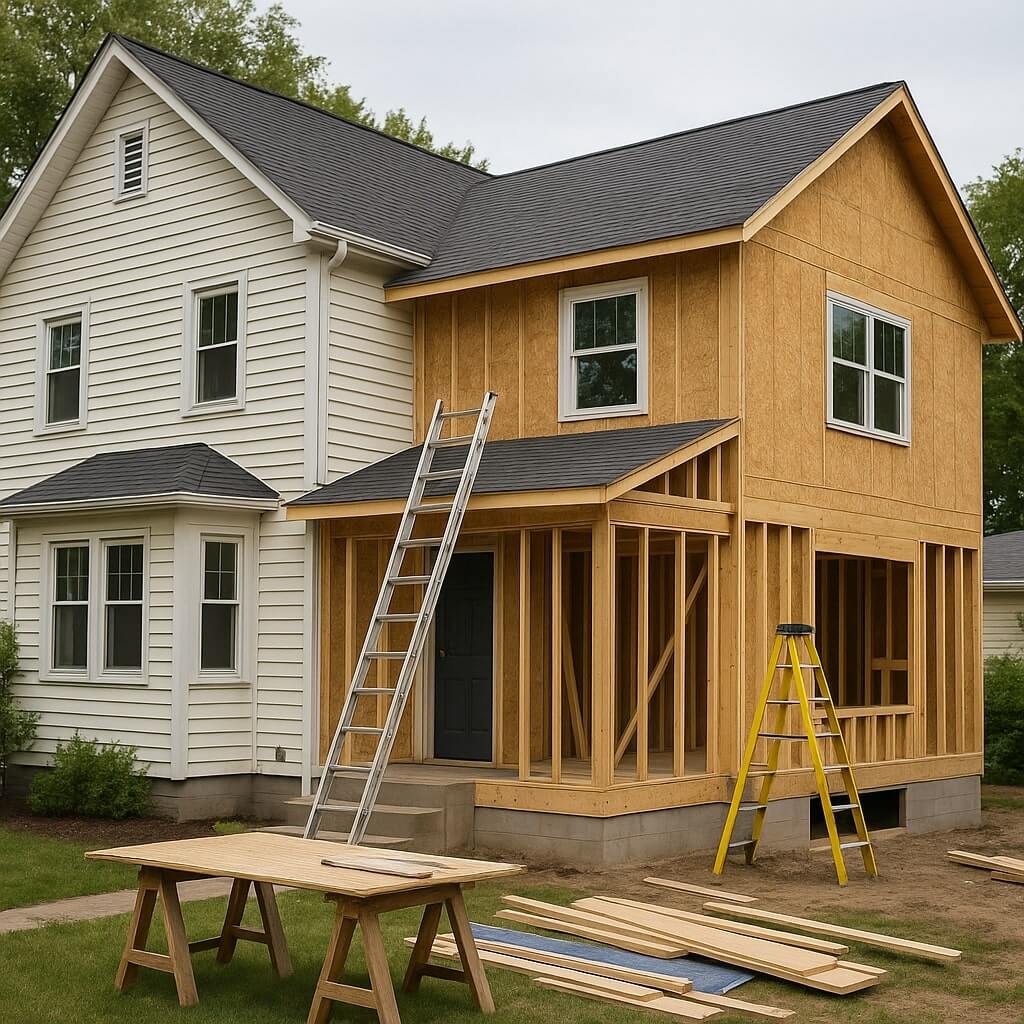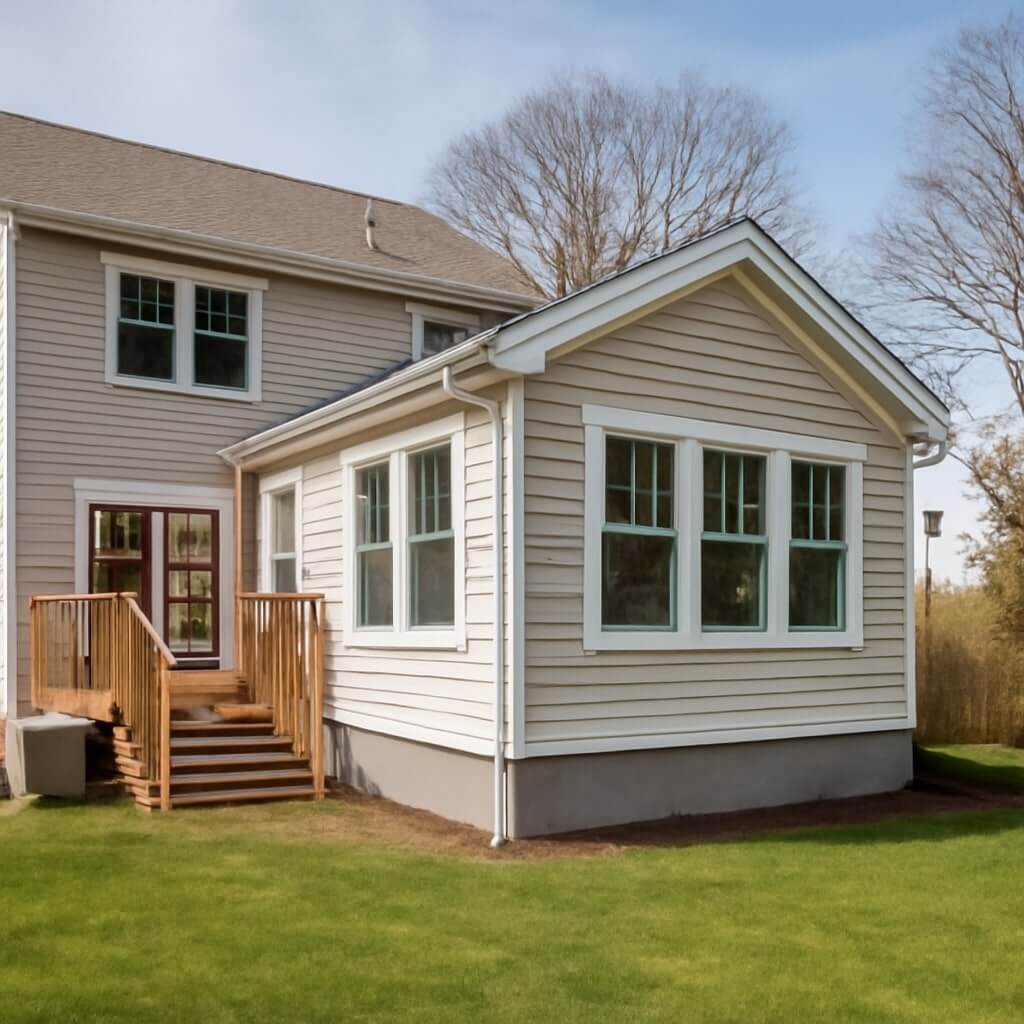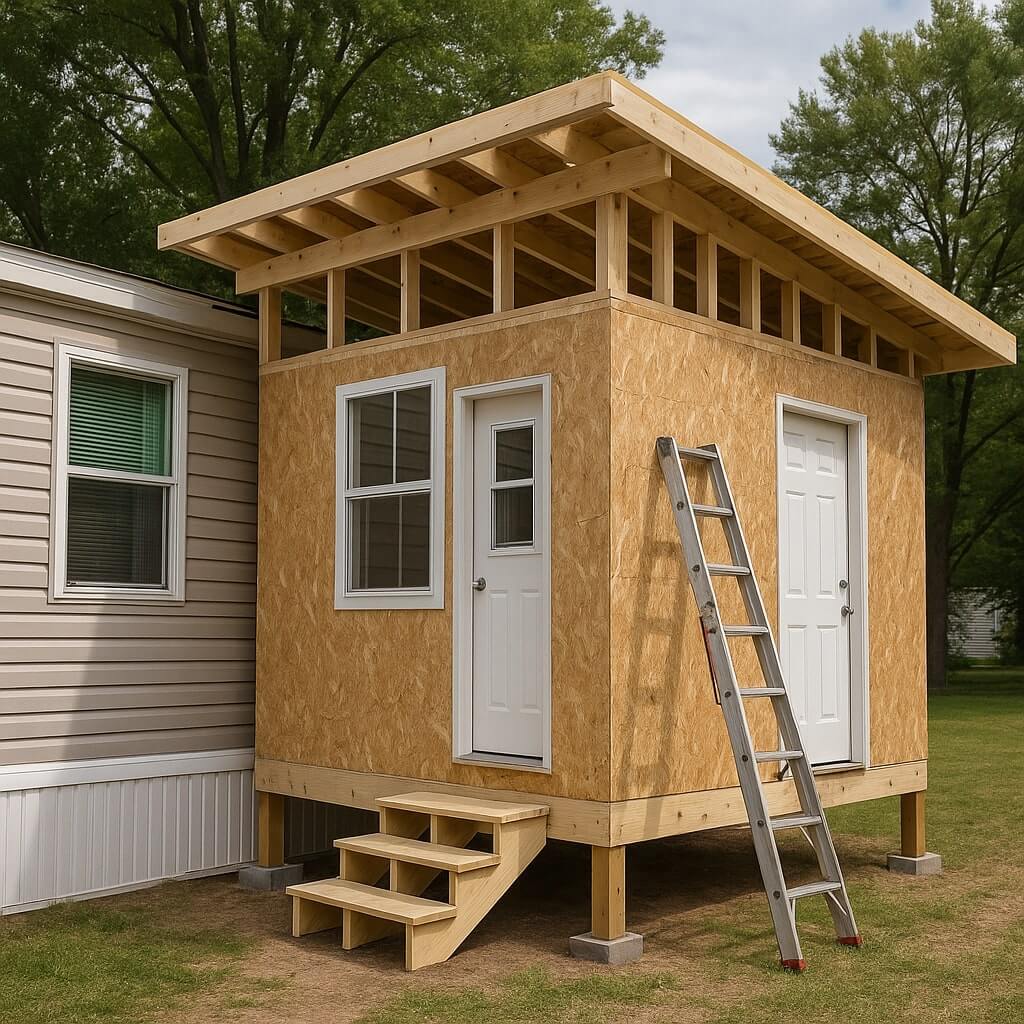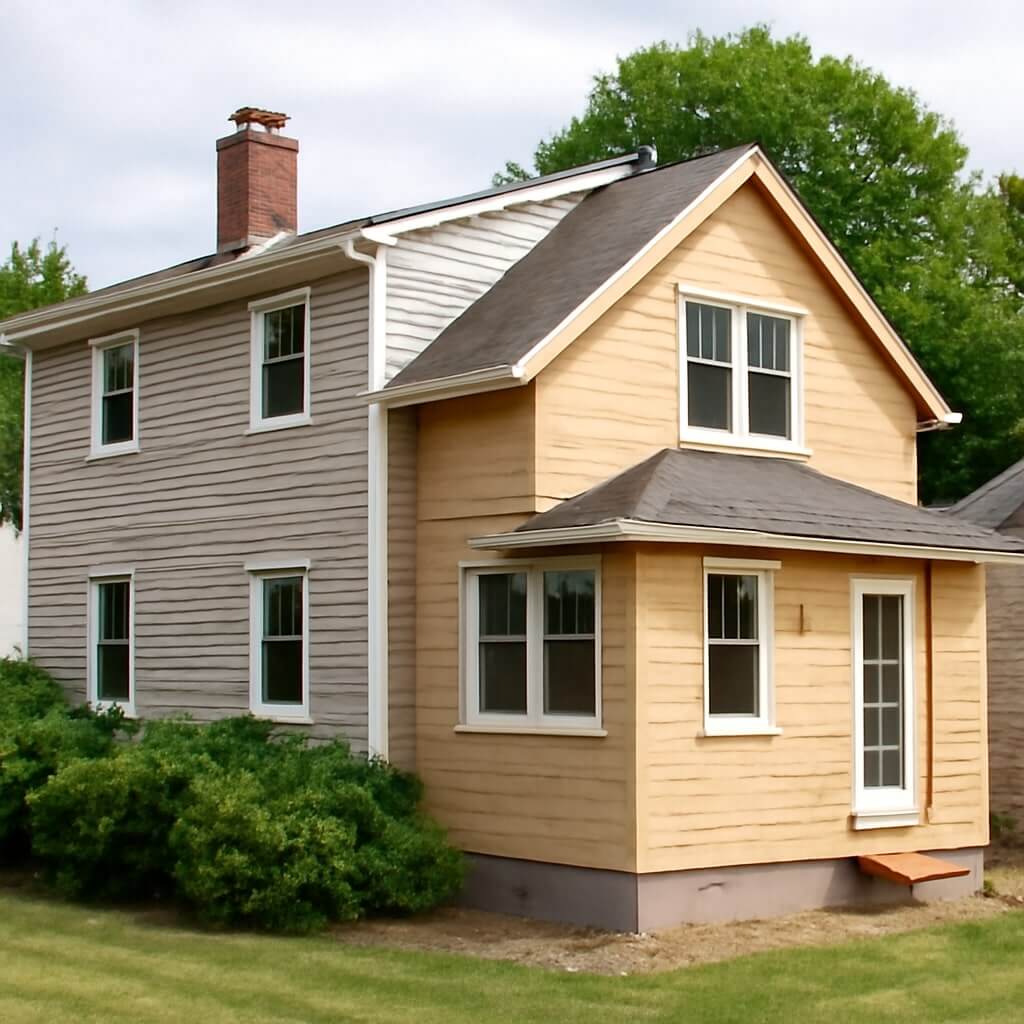Before you start gathering quotes for your home addition, it’s crucial to ask the right questions. Understanding the overall budget, project timeline, and required permits can greatly influence your planning. You’ll also want to discuss how the addition will affect your existing structure and what materials to use. Knowing these details upfront can save you time and money later. So, what else should you consider to guarantee a smooth process?
Key Takeaways
- Ask for a detailed breakdown of costs, including materials, labor, permits, and potential unexpected expenses.
- Inquire about the estimated timeline for project completion and any factors that may cause delays.
- Confirm necessary permits and approvals required for your home addition to ensure compliance with local regulations.
- Discuss how the addition will impact the existing structure and the quality of materials recommended for durability and aesthetics.
- Establish a clear communication process, including update frequency and response times for inquiries throughout the project.
What Is the Overall Budget for the Addition?
When planning a home addition, you might wonder, “What’s my overall budget?” Establishing a clear budget is crucial as it sets the boundaries for your project.
Start with a budget breakdown that includes materials, labor, permits, and unexpected costs. This financial planning guarantees you’re prepared for any surprises along the way.
Determine how much you can comfortably allocate without straining your finances. It’s wise to consult with contractors for estimates to refine your budget further.
What Is the Estimated Timeline for the Project?
After setting your budget, you’ll want to understand the estimated timeline for your home addition project.
Discuss the project phases with your contractor to get a clear picture of how long each stage will take. This helps you set realistic expectations and plan accordingly.
Keep in mind that timeline flexibility can be essential; unexpected delays may arise due to weather, materials, or labor availability.
Ask your contractor about potential challenges and how they might impact the timeline. A well-structured schedule not only guarantees your project runs smoothly but also keeps you informed throughout the process.
What Permits and Approvals Are Required?
What permits and approvals do you need for your home addition? Understanding the necessary permit types and approval processes is vital to avoid delays and fines. Here’s a quick guide:
Understanding the necessary permits and approvals is crucial to ensure a smooth home addition process and avoid costly delays.
- Building Permit: Required for structural changes, guaranteeing safety compliance with local codes.
- Zoning Permit: Confirms your addition aligns with local zoning laws regarding land use and property lines.
- Environmental Permits: Needed if your project impacts local ecosystems, such as wetlands or protected areas.
Before starting your project, check with your local building department to verify you have all necessary approvals in place.
How Will the Addition Affect the Existing Structure?
When planning your home addition, consider how it will impact the structural integrity of your existing home.
You’ll want to guarantee that any new design elements are compatible with the current architecture to maintain aesthetic harmony.
Understanding these factors now can save you from costly adjustments later.
Structural Integrity Considerations
Before you plunge into a home addition, it’s vital to reflect on how the new structure will impact your existing home’s integrity.
Consider these factors:
- Load Bearing Walls: Identify which walls support your home’s weight. Altering these can compromise safety.
- Foundation Requirements: Confirm your foundation can handle the additional load. An inadequate foundation can lead to severe issues.
- Structural Connections: Evaluate how the new addition ties into the existing structure. Proper integration is essential for stability.
Design Compatibility Factors
Although you may envision your new addition as a standalone feature, its design must harmonize with your existing home to guarantee aesthetic and functional compatibility.
Assess how the addition’s design aesthetics complement your home’s style while confirming it enhances overall space functionality. Consider materials, colors, and architectural elements that align with your current structure.
Additionally, think about how the new space will integrate with your existing layout, promoting fluid movement and usability. Consulting with professionals can help confirm that your addition not only looks cohesive but also serves its intended purpose effectively, enhancing your home’s value and livability.
What Materials and Finishes Are Recommended?
When considering your home addition, it’s essential to think about the recommended materials and finishes.
You’ll want to prioritize quality, sustainability, and durability to guarantee your investment lasts.
Discussing these factors with your contractor can help you make informed choices that align with your vision and budget.
Recommended Material Types
Choosing the right materials and finishes for your home addition is essential, as they can greatly impact durability, aesthetics, and overall value.
To guarantee you make informed choices, consider these recommended materials:
- Fiber Cement Siding: Offers excellent material durability and requires minimal maintenance while enhancing aesthetic appeal.
- Vinyl Windows: Known for their energy efficiency and longevity, they also come in various styles to match your home’s design.
- Engineered Hardwood Flooring: Provides a warm, inviting look with the durability needed for high-traffic areas.
Finish Quality Considerations
Selecting high-quality finishes is essential for your home addition, as they can greatly influence both the look and longevity of the space. Focus on appropriate material selection to enhance finish quality. Consider the following options:
| Material Type | Finish Quality | Recommended Use |
|---|---|---|
| Hardwood | High durability | Flooring and trim |
| Ceramic Tile | Water-resistant | Bathrooms and kitchens |
| Quartz Countertops | Low maintenance | Kitchen surfaces |
Investing in quality materials will guarantee your addition not only looks great but also stands the test of time, enhancing your home’s value.
Sustainability and Durability Factors
As you consider your home addition, it’s crucial to prioritize sustainability and durability in your material choices.
Opting for materials that enhance energy efficiency not only benefits the environment but also reduces long-term costs.
Here are three recommended options:
- Reclaimed Wood: Eco-friendly and adds character while minimizing deforestation.
- Low-VOC Paints: These finishes improve indoor air quality and reduce harmful emissions.
- Insulated Concrete Forms (ICFs): They provide superior insulation, enhancing energy efficiency and durability.
Who Will Be Working on the Project?
Who’s going to be on-site for your home addition project? It’s essential to know the team that’ll bring your vision to life.
Ask about the project experience of each member involved. Experienced professionals can navigate challenges effectively, ensuring timely completion. Inquire about team qualifications, including certifications and licenses, to guarantee they meet industry standards.
Understanding who’ll be working on your project helps build trust and transparency. Additionally, knowing their specific roles can clarify communication throughout the process.
Don’t hesitate to ask for references or past project examples to confirm their reliability and expertise.
What Is the Payment Schedule and Policy?
How will the payment schedule work for your home addition project? Understanding the payment milestones and policy details is essential.
You want to guarantee clarity to avoid any surprises. Here are three key points to discuss with your contractor:
- Initial Deposit: Confirm the upfront payment required before work begins.
- Progress Payments: Inquire about scheduled payments based on project milestones, like framing or roofing completion.
- Final Payment: Clarify when the last payment is due and what conditions must be met before it’s paid.
How Will Changes to the Plan Be Handled?
Understanding the payment schedule sets the foundation for your project, but it’s equally important to know how changes to the plan will be managed.
Ask your contractor about their approach to project flexibility and how they handle plan modifications. Will you be able to make adjustments easily, or are there strict limitations?
Inquire about any associated costs or delays that may arise from changes. Understanding this process upfront can save you time and stress later on.
Clear communication about modifications will guarantee your vision is realized while keeping the project on track.
What Warranties or Guarantees Are Offered?
What kind of warranties or guarantees does your contractor provide? Understanding warranty types and guarantee duration is essential before committing to a home addition.
Here are three key aspects to take into account:
- Workmanship Warranty: This typically covers defects in labor and is often valid for one to two years.
- Material Warranty: This relates to the quality of materials used, which can last anywhere from five to twenty years, depending on the product.
- Structural Warranty: This covers foundational issues and usually lasts ten years or more.
Confirm these details to guarantee you’re protected throughout your project.
Conclusion
Before you get home addition quotes, asking the right questions is essential for a successful project. By understanding the overall budget, timeline, necessary permits, and how the addition will affect your existing structure, you can make informed decisions. Clarifying materials, payment schedules, and how changes will be handled helps guarantee a smooth process. Don’t forget to inquire about warranties and who’ll be working on your project. This preparation will lead to a more seamless home addition experience.




